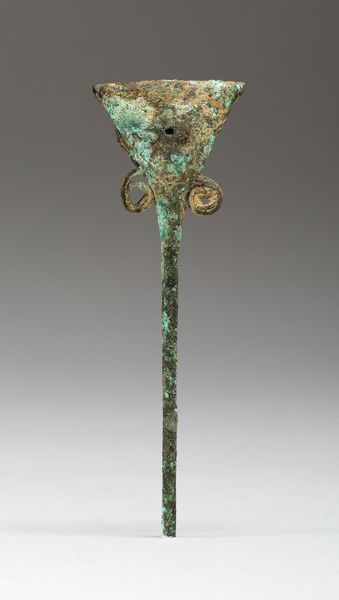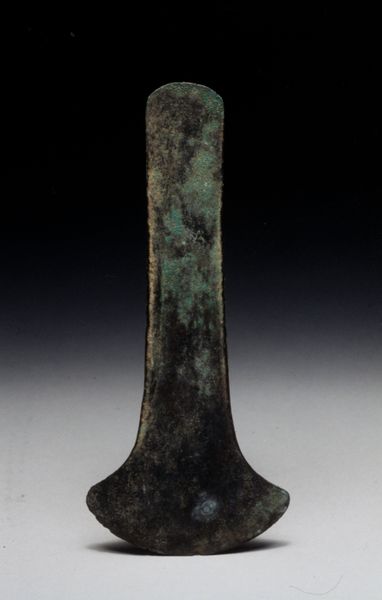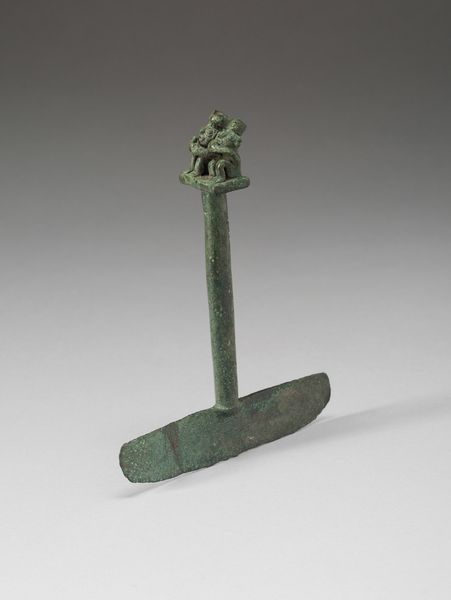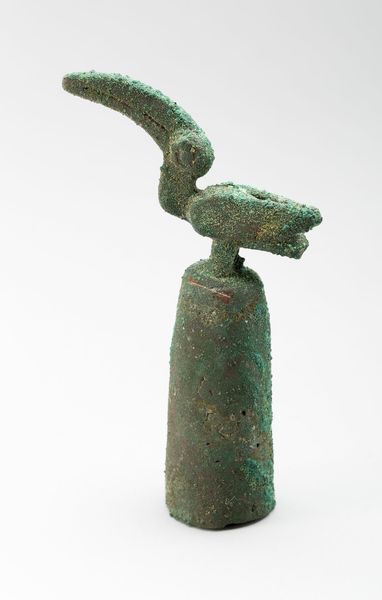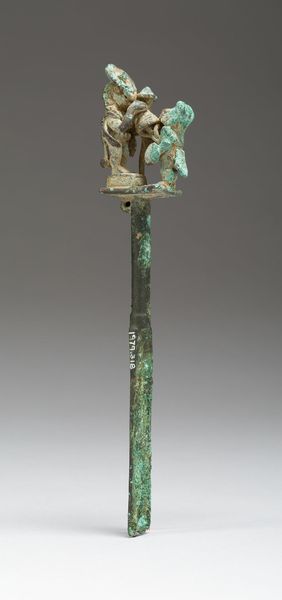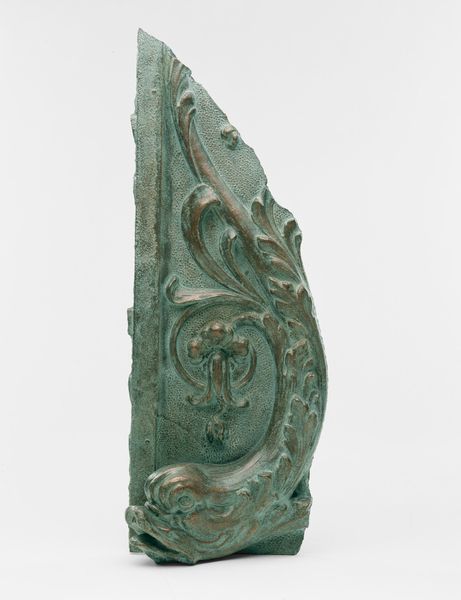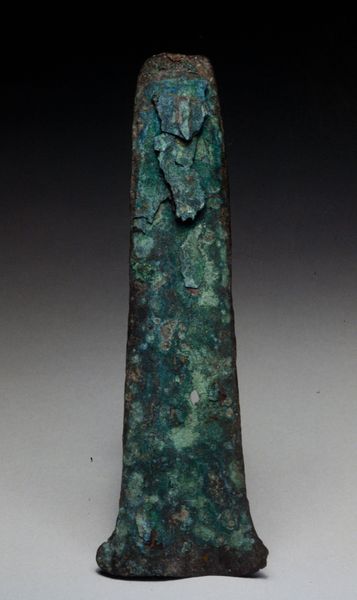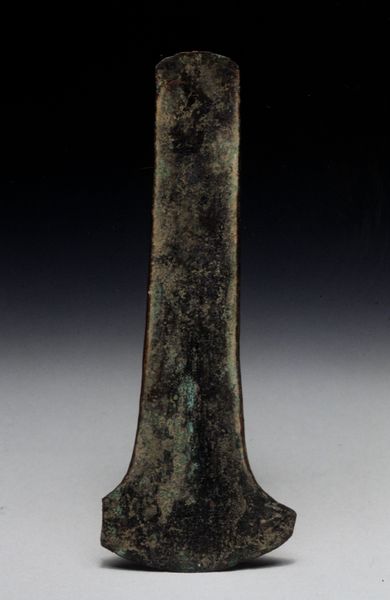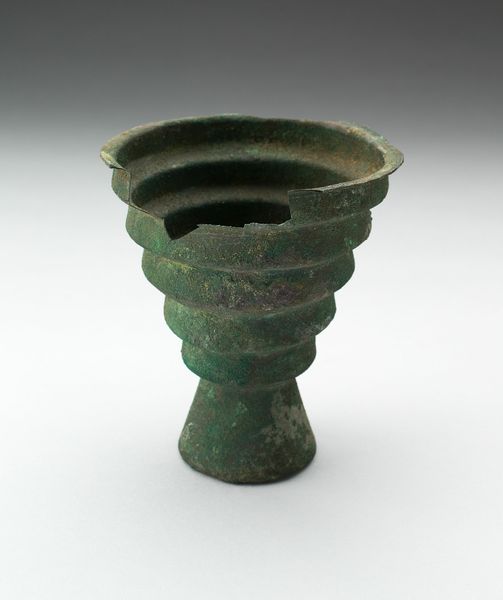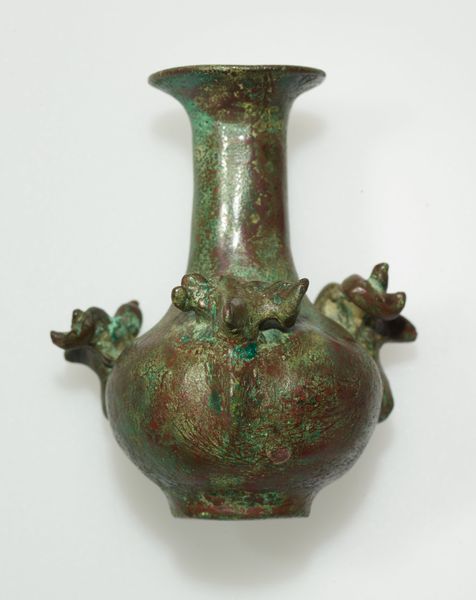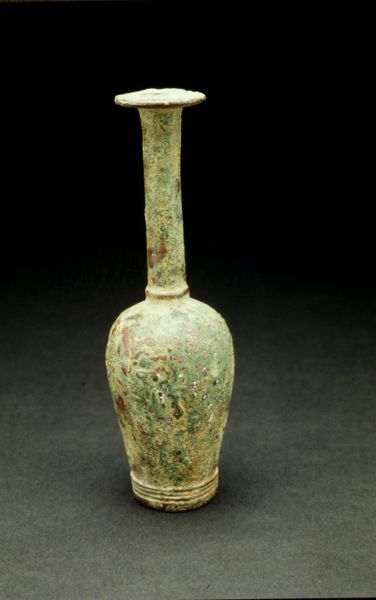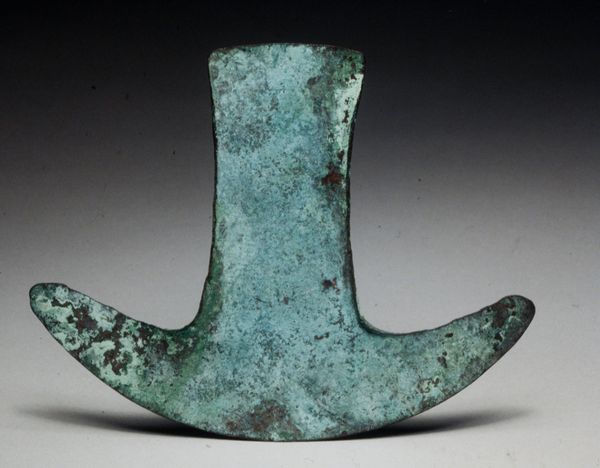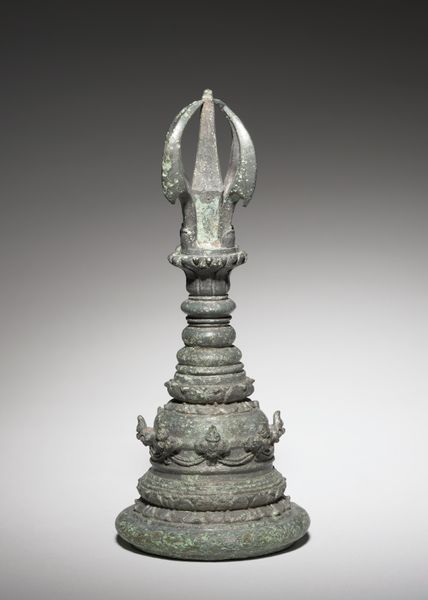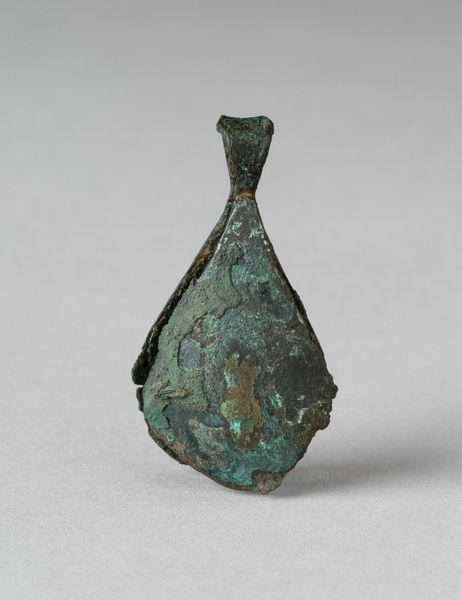
Ceremonial Knife (Tumi) With Figural Scene and Zoomorphic Figures Possibly 1100 - 1470
metal, sculpture
metal
figuration
sculpture
indigenous-americas
Dimensions: 17.6 × 8.3 cm (6 15/16 × 3 1/4 in.)
Copyright: Public Domain
This ceremonial knife, or tumi, was created by the Lambayeque people of ancient Peru. The tumi’s surface, made of bronze, is textured with intricate designs and crowned with figural scenes. The patina of aged bronze creates a visual depth and invites closer inspection. Consider the structure of the knife. Three vertical bands lead the eye upwards towards the scene at the summit. Notice how the negative space between these bands is as important as the bands themselves. This balance creates a sense of both stability and openness, drawing the viewer's attention to the figures above. The figural scene is equally intriguing. The presence of human and animal figures at the peak suggests a merging of worlds, challenging fixed categories. The detailed craftsmanship is not merely decorative but also serves as a semiotic code, pointing to the cultural values of the Lambayeque people. Ultimately, this tumi functions as more than just a tool; its form and structure speak to the beliefs and worldview of its creators. The tumi stands as a testament to the power of art to communicate complex ideas.
Comments
No comments
Be the first to comment and join the conversation on the ultimate creative platform.
